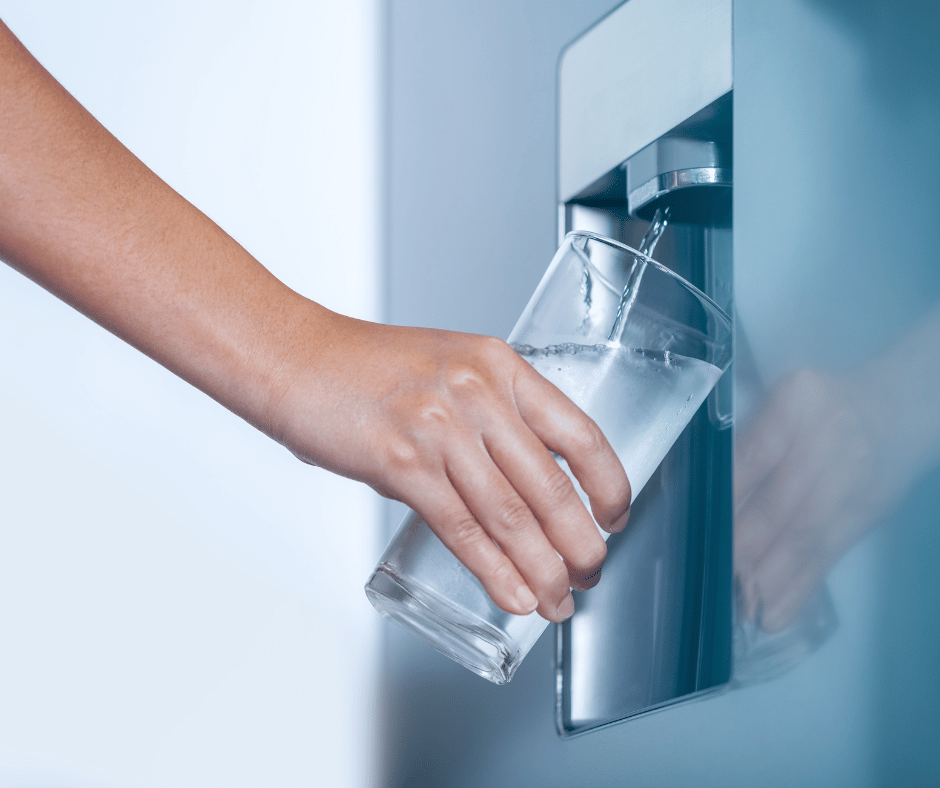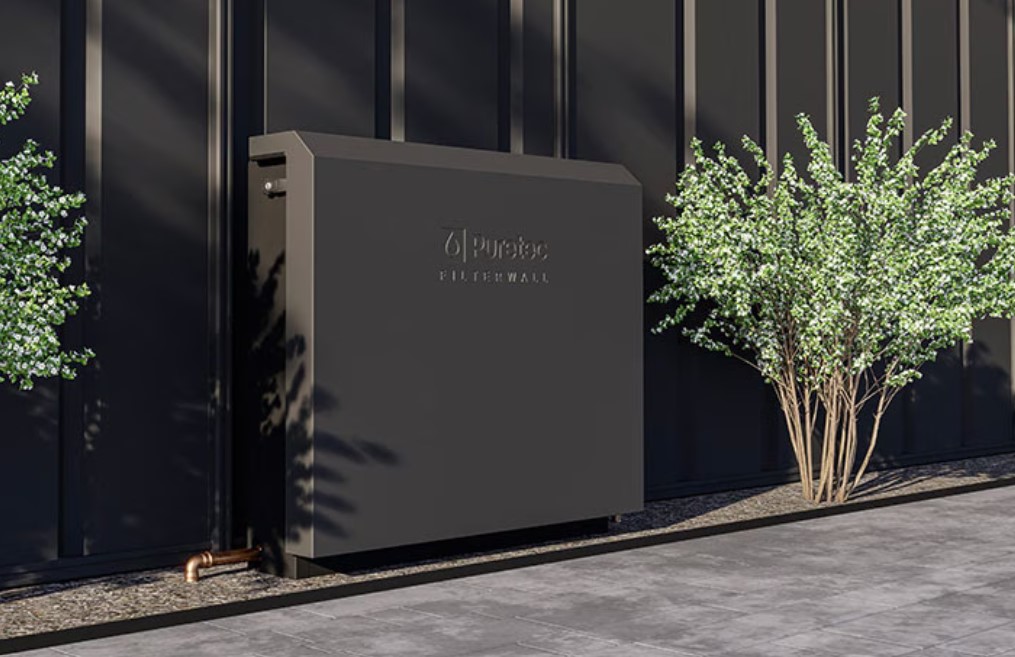While it may be impossible to smell or taste them, PFAS chemicals, commonly referred to as “forever chemicals”, are infiltrating the water we consume on a daily basis. These substances are alarmingly pervasive, making it essential for consumers to recognise their presence and understand the potential risks associated with them.
Since their introduction in the 1950s, these chemicals have been integrated into a diverse array of products including firefighting foam, fast food wrappers, non-stick cookware, and stain-resistant clothing. The very properties that render PFAS effective in manufacturing—such as their remarkable durability—are also the source of significant environmental challenges: they resist degradation. Once introduced into the ecosystem, these chemicals can persist for decades, accumulating in soil, water, and even within the human body, thereby intensifying the risks linked to exposure over time.

Understanding PFAS: Essential Facts About “Forever Chemicals”
Recently, Seqwater, the governing authority responsible for managing the drinking water supply in South East Queensland, confirmed the detection of trace amounts of PFAS in both raw and treated water throughout the region. Although these levels remain minimal and comply with national safety standards, their increasing prevalence is concerning, especially as they are being identified more frequently across various catchment areas. For a more comprehensive understanding, you can explore Seqwater’s dedicated PFAS resources.
Understanding How PFAS Contaminate Our Drinking Water
PFAS are not intentionally added during the water treatment process. They infiltrate the water supply through various external pathways such as industrial waste, landfill runoff, fire training sites, and stormwater runoff. During rainfall, these chemicals may wash off surfaces like roads, roofs, and soil, subsequently flowing into the rivers and dams that supply our water treatment facilities. Given the resilience of these chemicals, even advanced water treatment technologies may not be able to eliminate them entirely.
While the current risks associated with these contaminants are regarded as low, many households in Queensland are rightly taking precautionary measures, particularly families with young children, individuals with compromised immune systems, or those relying on rainwater tanks. Therefore, the adoption of whole-house water filtration systems becomes crucial for ensuring peace of mind.

Assessing the Efficacy of Standard Water Filters Against PFAS Contaminants
In summary, most standard water filters are ineffective at removing PFAS.
Common filtration systems like pitcher jugs, tap-mounted units, and basic under-sink systems are primarily designed to enhance taste, reduce chlorine levels, and trap sediment. However, when it comes to addressing PFAS contaminants, these systems fail to meet the necessary performance standards.
To effectively eliminate these persistent chemicals, a more advanced approach is necessary. Proper removal typically requires:
- Extended contact carbon block filtration methods
- Anion exchange resins, or
- Reverse osmosis — sophisticated technologies that are not standard in typical off-the-shelf filters.
This raises serious concerns for households that use plumbed-in refrigerators, where the filtered water might seem clean but is not specifically treated for PFAS. Most tap filters or refrigerator filter cartridges do not include the required filtration processes or sufficient contact time to significantly reduce PFAS levels.
The Importance of Whole House Filtration Systems in Reducing PFAS Exposure
This is where whole-house filtration systems, such as those provided by Creek to Coast Plumbing, become critically important.
These advanced systems treat every drop of incoming water before it reaches any tap, appliance, or plumbing fixture, including your refrigerator.
Creek to Coast Plumbing installs Puretec premium-grade filtration systems that incorporate:
- Carbon block filters designed for extended contact time — crucial for effective PFAS reduction
- pH correction filters to stabilise acidic rainwater
- UV disinfection to eradicate harmful bacteria, viruses, and parasites
- Optional reverse osmosis integration for additional filtration at kitchen taps, if desired
It’s not merely about improving the taste of your water; it’s about safeguarding your entire household from harmful contaminants right at the source, ensuring safer water for showers, laundry, and cooking—not just for drinking.
The Comprehensive Benefits of Choosing Whole House Filtration Systems
Although a single under-sink filter may protect your kitchen tap, PFAS can still infiltrate your home through various outlets such as bathroom taps, showers, garden hoses, and washing machines. Whole-house systems provide comprehensive protection across all outlets, which include:
- Drinking and cooking water
- Water for bathing and brushing
- Water for laundry
- Water for pets and garden use
Puretec’s FilterWall F-Series and Hybrid-Plus systems are robust enough to ensure complete household protection, installed right at the point of entry by our skilled and licensed team.
Do Whole House Filtration Systems Truly Provide Effective Protection?
Absolutely, especially for families concerned about cumulative exposure. While Seqwater is actively managing water quality, implementing filtration at the household level offers:
- An added barrier against chemical intrusion
- A consistent line of defence, irrespective of public infrastructure
- Improved taste and odour, along with peace of mind
- Support for individuals with allergies or sensitivities
Comparing Town Water and Rainwater: Understanding the Associated Risks
Even if you are connected to a town water supply, PFAS can still permeate into your home. Conversely, if you are harvesting rainwater for household use, your risk profile is significantly elevated.
Rainwater in Queensland may contain:
- Animal waste from roof catchments
- Airborne chemicals from industrial activities or bushfire zones
- Low pH water that can corrode pipes and release heavy metals into your water supply
- Tannins resulting from decomposing vegetation
This underscores the critical need for a whole-house system for homes relying on tank water, particularly those with children, elderly residents, or frequent visitors who may not be accustomed to untreated water.
How to Verify If Your Filter is Adequate for PFAS Reduction
If your current filtration system does not explicitly mention PFAS reduction, it is likely inadequate for this purpose.
To ensure your system is capable of addressing the issue, search for filters that include:
- NSF/ANSI 53 or 58 certification specifically for PFAS filtration
- Activated carbon filters designed for high contact time
- Reverse osmosis or hybrid systems rated for PFAS contaminants
- Professional installation to avoid pressure drops or bypass issues

Choose Creek to Coast Plumbing: Your Trusted Experts for Comprehensive Water Filtration Solutions
As certified Puretec installers, we specialise in designing and implementing whole-house water filtration systems tailored to Queensland's distinct conditions, whether you are connected to the town supply or utilising off-grid tank water. We proudly serve homes throughout the Sunshine Coast, Moreton Bay, and inland regions, recognising that effective filtration goes beyond taste; it’s about delivering peace of mind for you and your family.
With our comprehensive annual servicing and filter replacement programmes, you’ll never need to worry about your system’s performance.
Call 1300 793 962 or contact us online.
Are You Seeking Water Filters That Effectively Eliminate PFAS?
Inquire about our offerings:
- Whole House Carbon Block Filtration
Treats all water entering your home, including taps, showers, appliances, and refrigerator plumbing. - UV + Carbon Combination Systems
Advanced multi-stage systems designed to neutralise bacteria and filter chemical residues — ideal for properties using rainwater and tank-fed sources. - Reverse Osmosis (RO) Add-Ons for Drinking Water
Installed discreetly beneath your kitchen sink for ultra-purified water at your most frequently used outlets.
The Article: PFAS in Drinking Water: Do Whole House Filters Offer Protection? first appeared on https://writebuff.com
The Article Whole House Filters: Effective Protection Against PFAS in Water? Was Found On https://limitsofstrategy.com

